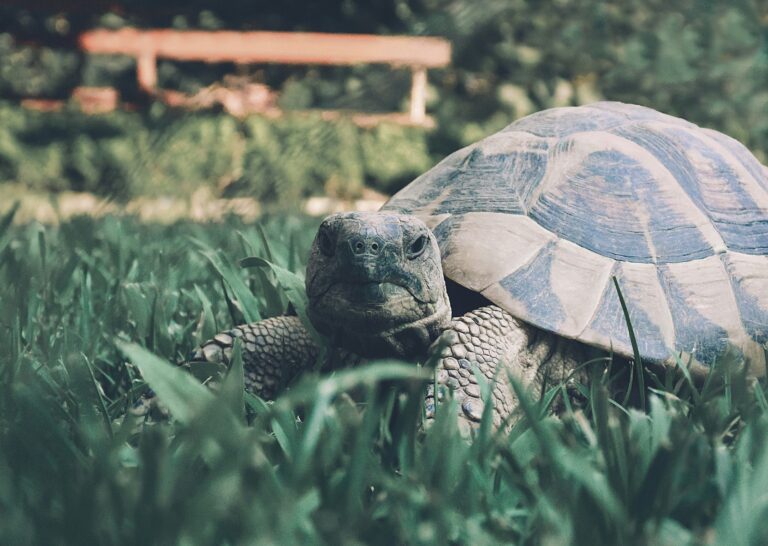Are Russian tortoise good pets? 4 Amazing facts

Testudo Horsfieldii, the scientific name for Russian tortoises, is becoming more and more popular as pets because of their interesting activities, quiet disposition, and small stature. But prospective pet owners frequently wonder: Are Russian tortoises suitable companions? We’ll explore the traits, maintenance needs, and suitability of Russian tortoises as pets in this extensive guide.
Knowing the Character of Russian Tortoises:
Russian tortoises are found in grasslands, scrublands, and deserts in the dry regions of Central Asia. These tortoises exhibit distinct habits and characteristics that make them fascinating pets, and they have evolved to thrive in hostile habitats.
Temperament: Due to their peaceful and docile disposition, they are good pets for both individuals and families. Even though they might not show obvious affection like certain mammalian pets do, they frequently behave calmly and curiously, especially when handled and socialized regularly.
Longevity: Russian tortoises can live for 40 to 60 years or more in captivity if properly cared for. Due to their lifespan, adopting a pet requires a long-term commitment from pet owners, necessitating thoughtful thought and preparation beforehand.
Size: At 6 to 10 inches in length, Russian tortoises are modest in comparison to several other kinds of tortoises. Due to their small size, they are manageable for owners with limited space and appropriate for indoor cages.
Low Maintenance: Compared to certain other companion animals, Russian tortoises require less daily care, making them comparatively low-maintenance pets. After their habitat is properly set up, they require routine feeding, water availability, and sporadic enclosure cleaning.
Russian tortoises are generally gentle animals that are unlikely to bite or scratch their owners. They are good companions for homes with kids or other pets because of their quiet disposition and consistent behavior.

Russian tortoises are frequently recommended as great pets for reptile enthusiasts, beginners, and families due to their numerous good characteristics. But it’s important to know what kind of care they need and whether or not it fits with your interests and way of life.
1. Requirements for Habitat: The health and welfare of Russian tortoises depend on the provision of a suitable habitat. To replicate their native habitat, a large cage with enough substrate, hiding places, and basking areas is required. Furthermore, for digestion and thermoregulation, it is essential to have access to warm basking spots and UVB lighting.
2. Dietary Requirements: They are herbivores with specialized nutritional requirements. For their health and nourishment, a diet high in fiber vegetation—such as grasses, leafy greens, and weeds—is necessary. Foods heavy in fat or protein should not be given to pets since they might cause obesity and malformations of the shell.

3. Healthcare: To keep them healthy, regular veterinary examinations and good husbandry techniques are crucial. While preventive measures like parasite control and dental care can assure their long-term well-being, routine examinations can aid in the early detection and treatment of health disorders.
4. Socialization and involvement: They can get used to being handled and may even like hand feeding or soft petting, even though they may not have the same intense desire for human involvement as certain other pets. Building a relationship with your tortoise can be facilitated by positive reinforcement and frequent interaction.
In summary, They are wonderful pets for the proper people and homes because of a variety of attributes. For reptile aficionados looking for a fulfilling and long-term pet ownership experience, their gentle temperament, moderate size, and extended lifetime make them desirable companions. Russian tortoises can live as cherished members of your family for many years to come if you understand their needs, provide them the care they need, and cultivate a pleasant relationship.
Read More: Are Russian Tortoise Friendly?2 tips for friendship